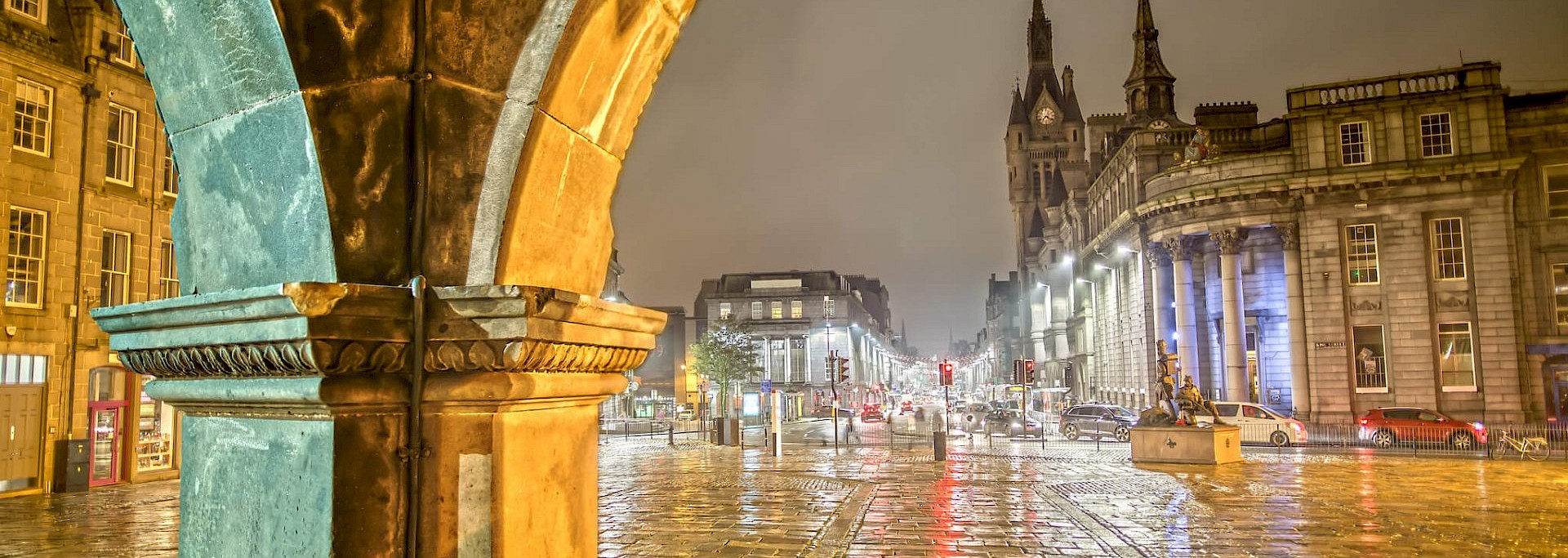I was recently at the Edinburgh Fringe Festival and, as I sat there watching one of the acts, I wondered how many of our hospitality clients have strategies for dealing with big events like this.
The Fringe Festival is indeed a big event – there were over 2.4 million tickets issued last year – and, without a comprehensive strategy for handling that much footfall, businesses risk missing out on the income it generates.
The same can be said for smaller-scale events like the Orkney Folk Festival.
These can be great sources of revenue for the hospitality businesses that approach events proactively and with a well thought out plan.
So, if I was a restaurant, hotel or bar owner, here’s what I’d do to make sure I capitalised on the opportunity…
Review your pricing strategy
First and foremost, I would review my pricing strategy.
Big events often draw crowds who are willing to spend more for the experience, so you’ll want to ensure your pricing reflects this increased demand.
However, as you know, there’s a fine balance to be struck.
You don’t want to alienate regular customers by pricing them out, but a modest increase during peak times can significantly boost your revenue without causing dissatisfaction.
It's important to keep an eye on your competitors’ pricing as well to stay competitive while maximising profits.
Ensure adequate staffing levels
Next, I would consider my staffing levels.
Festivals and events can be overwhelming if you’re not adequately staffed, leading to poor service and a negative customer experience.
It’s worth looking into temporary staff or even adjusting shift patterns to ensure you’re fully prepared.
Don’t forget to factor in the extra costs of additional staff when forecasting your profits!
Training is, of course, also important and staff should be well-prepared to handle the unique demands of a large crowd, from increased pressure on service speed to dealing with potentially ‘rowdier’ customers.
Optimise stock management
Increased footfall means increased consumption, so ensuring you have sufficient stock to meet demand is very important.
I would recommend reviewing your inventory well in advance of the event and making sure you have robust supply chains in place.
This includes everything from food and drink to cleaning supplies.
(If there’s going to be road closures, make sure your supplier can actually get your stock to you!)
It might even be worthwhile to negotiate with suppliers for discounts on bulk purchases or fast-track delivery options to avoid any last-minute shortages.
Simplify and innovate your menu
I’d think about creating event-specific items that are easier and quicker to prepare, yet still high in margin.
Limited time offers can also create a sense of urgency and exclusivity, encouraging patrons to spend more.
If you run a restaurant, simplifying the menu during these periods can help manage kitchen stress and improve service efficiency, all while maintaining the quality of what’s being offered.
Incorporate big events into your financial planning
On the financial side, budgeting for big events should be part of your annual financial planning.
It’s not just about the short-term boost in revenue but also the associated costs.
From the additional staffing and stock to potential equipment hire or increased utilities, it’s crucial to have a clear picture of how these events will affect your bottom line.
You should also factor in any potential disruptions to normal business operations, particularly if the event means closing off regular services or altering your usual operating hours.
If you’d like assistance with this, we’re more than happy to help!
Manage cash flow effectively
Additionally, I’d be looking at how I handle cash flow during these periods.
High sales volumes can be great, but they also mean you’ll need to manage cash flow carefully to avoid issues like running out of change or having insufficient funds to pay suppliers promptly.
Using forecasting tools can help predict cash flow needs during these peak periods and allow you to prepare accordingly but I’d argue that your accountant can do a better job – especially if they know your sector well.
Be aware of the tax implications
Lastly, I’d suggest it’s worth looking into any tax implications of these events.
Depending on your location and the nature of the event, there might be specific tax reliefs or obligations to consider.
For example, if you’re involved in sponsorship or partnerships for the event, make sure you’re aware of how these could impact your VAT or Corporation Tax obligations.
Consulting with a tax adviser can ensure you’re not leaving money on the table or falling foul of any regulations.
As you can see, without a well-planned strategy that covers pricing, staffing, stock management, menu offerings, financial planning, cash flow, and tax implications, you might find yourself overwhelmed or missing out on potential profits when it comes to big events.
If you’d like help managing things like the Edinburgh Fringe, the Orkney Folk Festival or any other local events (big or small) please feel free to contact the Scholes CA team.



